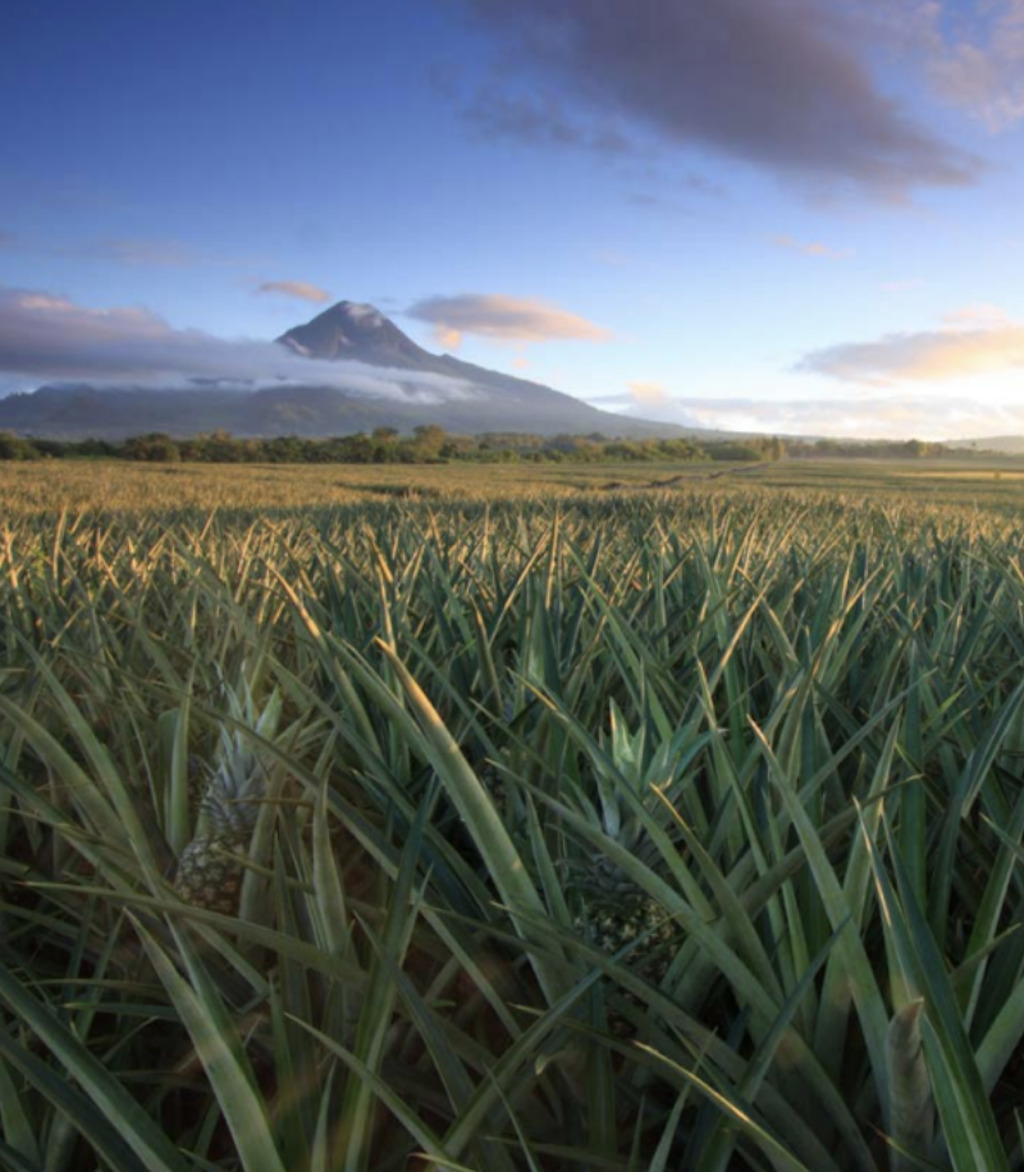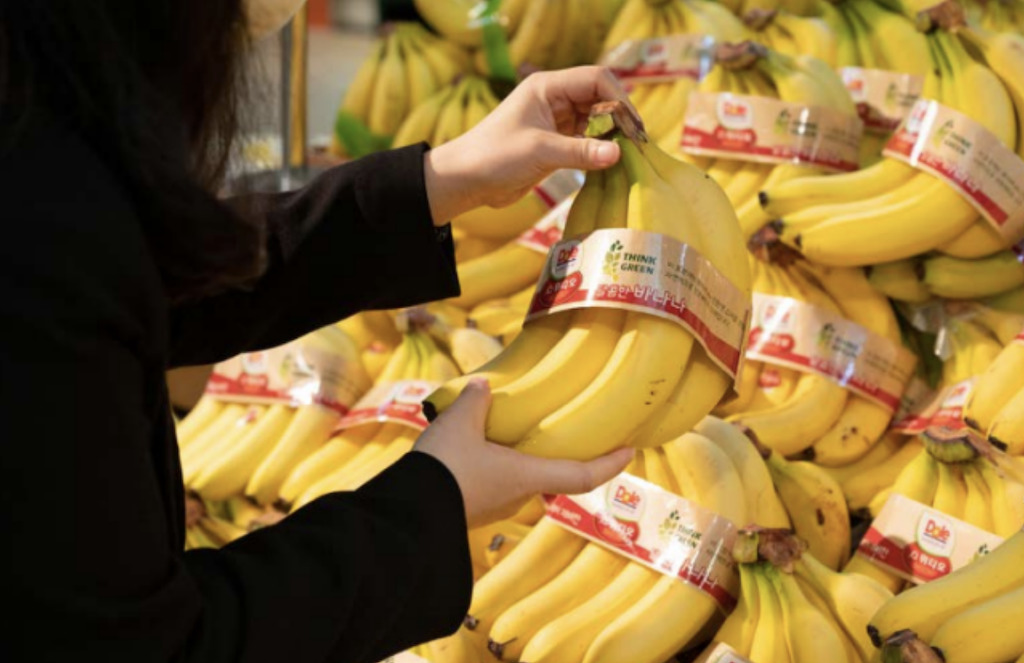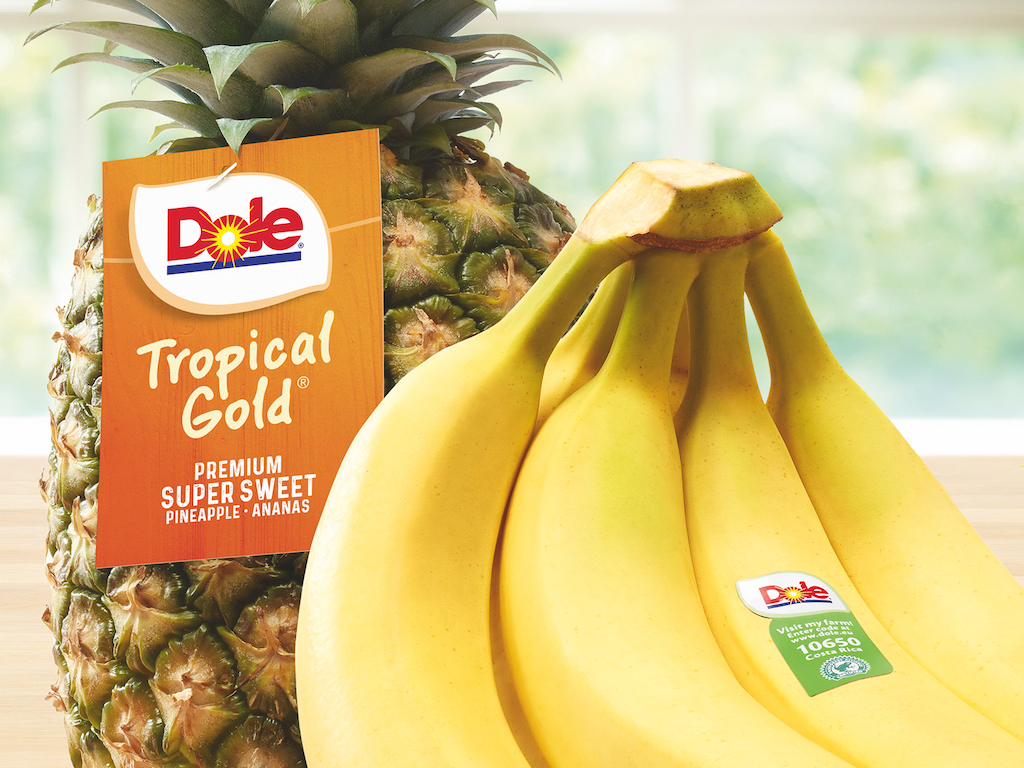3 Mins Read
Dole, the world’s largest fruit and vegetable producer, says that in its push to tackle food waste, it has managed to prevent 80% of “ugly” fruit from going to waste from its Thailand farms. Instead, less-than-pretty produce is being upcycled and repurposed into new products—and the corporation now wants to get this figure up to 100% and eliminate fruit loss entirely by 2025.
Dole Sunshine says it is upcycling 80% of the “ugly” fruit that would otherwise be discarded as waste in its Thailand farms. It has found new ways to repurpose fruit, from turning banana leaves into packaging to developing snacks made from unaesthetic veggies. Or even turning half-rotten misshapen produce into electricity by processing it in biogas facilities.
Over in the Philippines, the company recently began turning its pineapple leaves to new fibres to make the vegan leather Piñatex, partnering with the startup Ananas Anam for the initiative.
Fighting food waste
Ultimately, Dole says it wants to repurpose 100% of all the “ugly” fruit in its Thailand farms to achieve zero fruit loss by 2025. The company first announced its ambitious goal in 2020, as part of its push to reach net-zero carbon emissions before the end of the decade.

Food waste is one of the largest contributors to global heating, driving as much as 10% of global GHG emissions. Every year, the world throws out nearly one billion tonnes of food—931 million to be exact, according to the UN’s latest report.
At the time of announcing its initial plan back in 2020, president of Dole, Pier Luigi Sigismondi, said: “If food waste were a country, it would come in third after the United States and China in terms of impact on global warming.”
No more fossil fuel-based packaging
But eliminating food loss is just one part of Dole’s multi-pronged plan, the corporation says in its updated pledge for 2021. It says it wants to eliminate all fossil fuel-based packaging by 2025—and that means no more plastic wrap, stickers and bags.
Currently, Dole says it is working hard to shift towards paper or pulp-based bowls instead of plastic pouches, and will be getting rid of all plastic-based stickers on its fresh fruit by 2022. In South Korea, for instance, it has begun using paper straps for its bananas.
“Change starts by taking responsibility for our own actions and the first step is the hardest,” said Sigismondi, pledging the company will continue to “do better by eliminating waste and achieving carbon neutrality.”

Big food facing big pressure
Dole’s move is likely a direct response to the growing pressure big businesses are now facing to clean up their act. Within the food industry, large brands now face growing scrutiny from consumers, who now believe that companies have a responsibility to take both environmental and social action. Dole rival Del Monte, for instance, is now working with startups like Apeel to fight food waste too, using the firm’s plant-based protective coating to prevent its avocados from spoiling.
According to a recent global survey conducted by Wunderman Thompson, 86% expect businesses to “play their part” to solve climate change and social inequality, with 75% saying there is now a “higher bar” for businesses in the post-pandemic world.
When it comes to food purchases, another global poll by Kerry found that half of all shoppers are factoring in sustainability as a “minimum standard” for brands. It also revealed that consumers want food companies to offer more nutritious products too.
Dole, in addition to making a series of sustainability promises, has taken heed to this trend as well, promising to eliminate all processed sugars in its entire portfolio by 2025. At the moment, the company is working to reformulate its products, with 47% already achieving the zero processed sugar goal.
All images courtesy of Dole.




